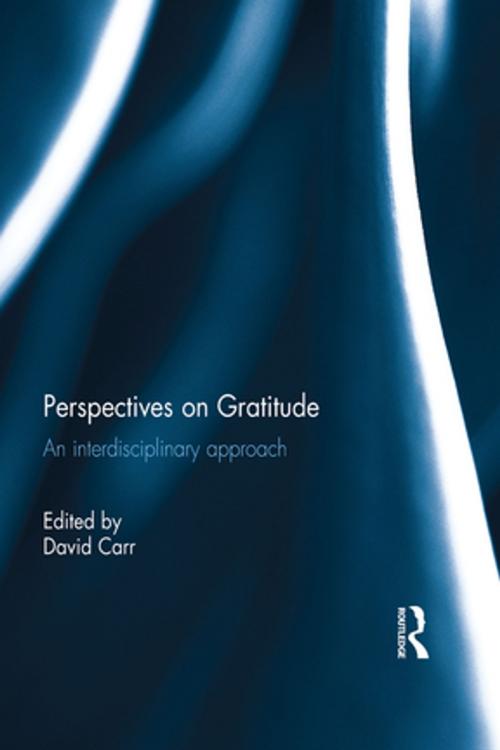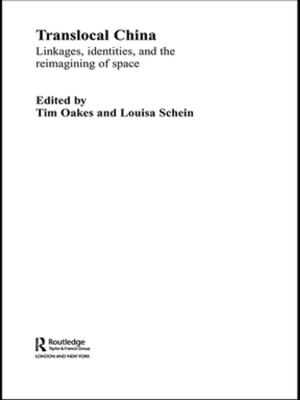Perspectives on Gratitude
An interdisciplinary approach
Nonfiction, Reference & Language, Education & Teaching, Educational Theory, Philosophy & Social Aspects| Author: | ISBN: | 9781317568421 | |
| Publisher: | Taylor and Francis | Publication: | February 5, 2016 |
| Imprint: | Routledge | Language: | English |
| Author: | |
| ISBN: | 9781317568421 |
| Publisher: | Taylor and Francis |
| Publication: | February 5, 2016 |
| Imprint: | Routledge |
| Language: | English |
Psychologists, philosophers, theologians and educationalists have all lately explored various conceptual, moral, psychological and pedagogical dimensions of gratitude in a rapidly expanding academic and popular literature. However, while the distinguished contributors to this work hail from these distinct disciplines, they have been brought together in this volume precisely in recognition of the need for a more interdisciplinary perspective on the topic.
While further developing such more familiar debates in the field as whether it is appropriate to feel grateful in circumstances in which there is no obvious benefactor, whether it is proper to feel grateful to those who have benefited one only from a sense of duty and whether it makes sense to be grateful if so doing colludes with injustice, the essays in this collection explore a wide variety of fresh conceptual, psychological and moral issues. For example, in addition to identifying some new moral paradoxes about gratitude and seeking a generally more morally discriminating approach to gratitude education, relations are explored between gratitude and humility, forgiveness and appreciation and the religious and spiritual dimensions of the concept are also given much overdue attention.
By drawing together serious academic engagement with the study of gratitude and a serious attempt to undertake this within an interdisciplinary perspective, Perspectives on Gratitude will be of value to academics and graduate students in the fields of philosophy, psychology and theology, as well as other research-based disciplines.
Psychologists, philosophers, theologians and educationalists have all lately explored various conceptual, moral, psychological and pedagogical dimensions of gratitude in a rapidly expanding academic and popular literature. However, while the distinguished contributors to this work hail from these distinct disciplines, they have been brought together in this volume precisely in recognition of the need for a more interdisciplinary perspective on the topic.
While further developing such more familiar debates in the field as whether it is appropriate to feel grateful in circumstances in which there is no obvious benefactor, whether it is proper to feel grateful to those who have benefited one only from a sense of duty and whether it makes sense to be grateful if so doing colludes with injustice, the essays in this collection explore a wide variety of fresh conceptual, psychological and moral issues. For example, in addition to identifying some new moral paradoxes about gratitude and seeking a generally more morally discriminating approach to gratitude education, relations are explored between gratitude and humility, forgiveness and appreciation and the religious and spiritual dimensions of the concept are also given much overdue attention.
By drawing together serious academic engagement with the study of gratitude and a serious attempt to undertake this within an interdisciplinary perspective, Perspectives on Gratitude will be of value to academics and graduate students in the fields of philosophy, psychology and theology, as well as other research-based disciplines.















